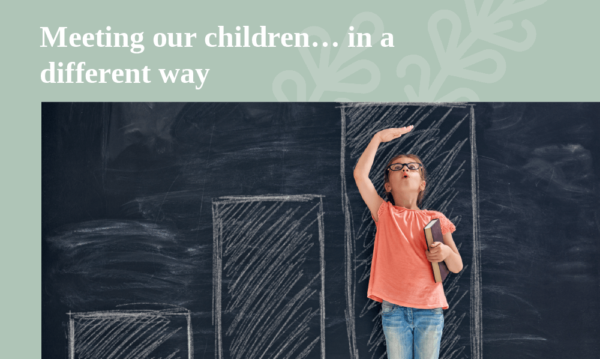Living with someone for years creates entrenched perceptions of who that person is, their characteristics, and especially what to expect from them. That is also the case with children, who shortly after birth will begin to be characterized by the environment as “calm,” “fussy,” “social,” “serious,” “manipulating,” etc. Whether the parents have gone into the process of giving themselves some characteristics to their children or have accepted others’ comments, the impressive thing is that children tend to respond to these elements, even if they are not particularly representative of them.
If we took some time to record ten adjectives describing our children, we could explore a few issues such as:
– Which of these adjectives could we attribute to ourselves?
– What adjectives are strongly opposed to our values, e.g., ‘lazy’ if I am too active and hard-working?
– Do we get upset when he manifests a trait because of our guilt that he has evolved into such a person?
– Do we look a lot like this, or do we look like someone we can’t accept?
– Is it different?
– Does he allow himself behaviors that we forbid ourselves?
– Did we unconsciously direct him to be that person because we thought that was the case?
– Do we blame him for our failure to become the parents we’d like to be?
The process of characterization and attribution at children of various properties works to contribute to their evolution through parenthood. If we were trying to transform our list’s features into phrases, e.g., “Serious” = “he will not smile at someone with whom he is not comfortable,” we automatically create new perceptions about our children we see them differently, with a new look.
Properties are something entrenched, while behaviors allow us to wonder “when,” “with whom,” “what has preceded,” “what needs,” and “what feelings” this behavior may hide. Thus, we do not have before us an aggressive child but a child who reacts aggressively when he lacks the parents’ substantial emotional presence and struggles to get their attention in all the “wrong” ways, risking being described as “aggressive.” We do not have a “fussy” baby in front of us, but a baby whose stomach hurts every time he eats and tries to communicate his discomfort with this whining.
So if we realize that we have variously characterized a child to the extent that all these qualities have evolved into self-fulfilling prophecies, let us dare to take a step back and observe both when the child behaves in this way his daily positive behaviors. Undoubtedly, we all have our good and bad sides, but it is the one supported by those around us that will prevail and will be the rule in our daily lives. So let us dare to see our children… otherwise, we may get to know ourselves better.


